According to the All-Ukrainian nationally representative poll, conducted by Info Sapiens on March 28-29, 2022, 79% of Ukrainians believe that ordinary Russians are to blame for the invasion, and this figure was 75% two weeks ago.
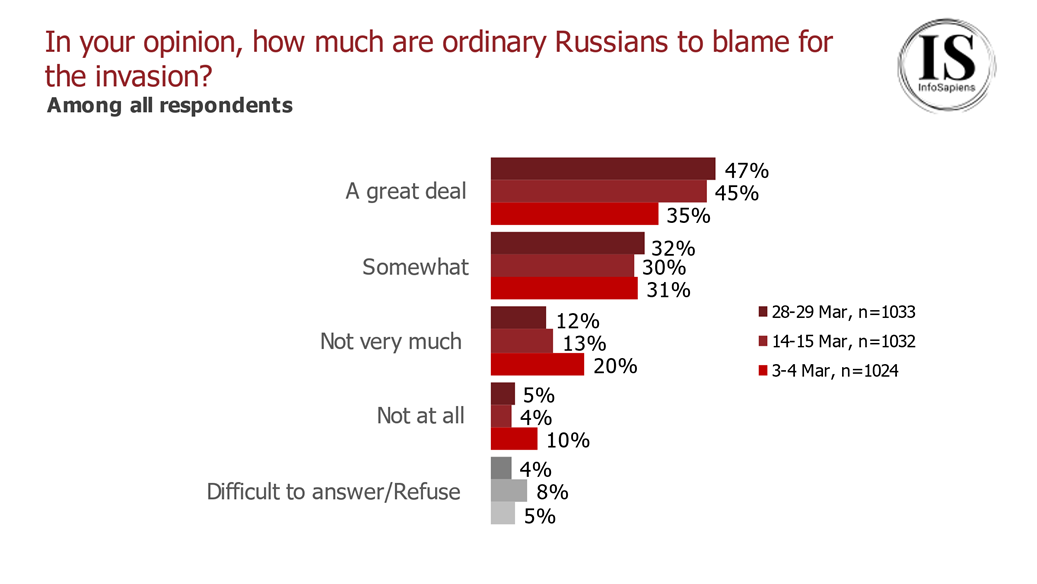
The majority (53%) of Ukrainians had close relatives or friends in Russia before the war, now 38% indicate that they have relatives and friends there, and 15% - that they no longer regard them as such.
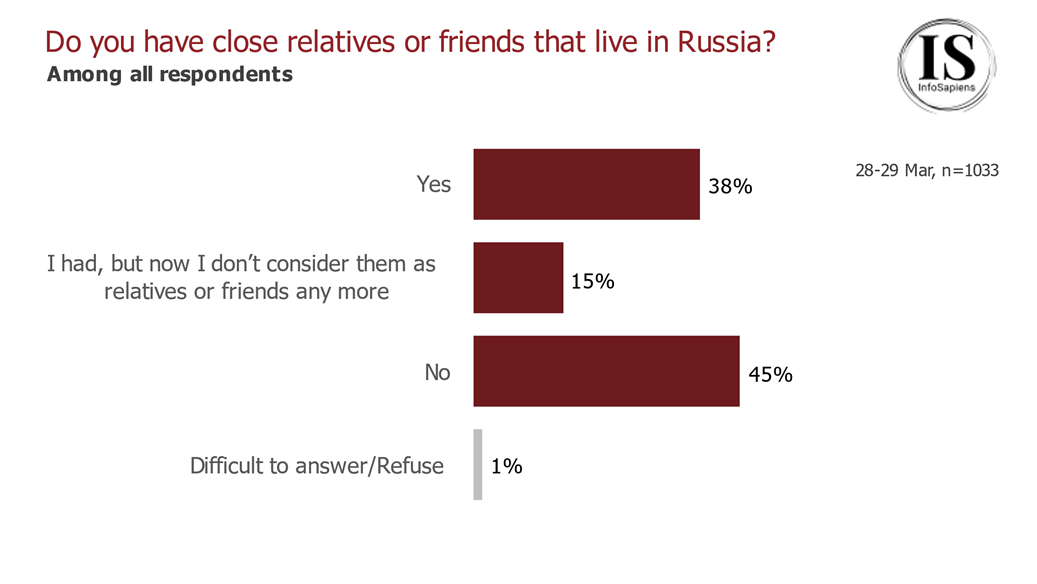
77% of those who had relatives or friends in Russia stopped communicating with them – either with everyone or, at least with some.
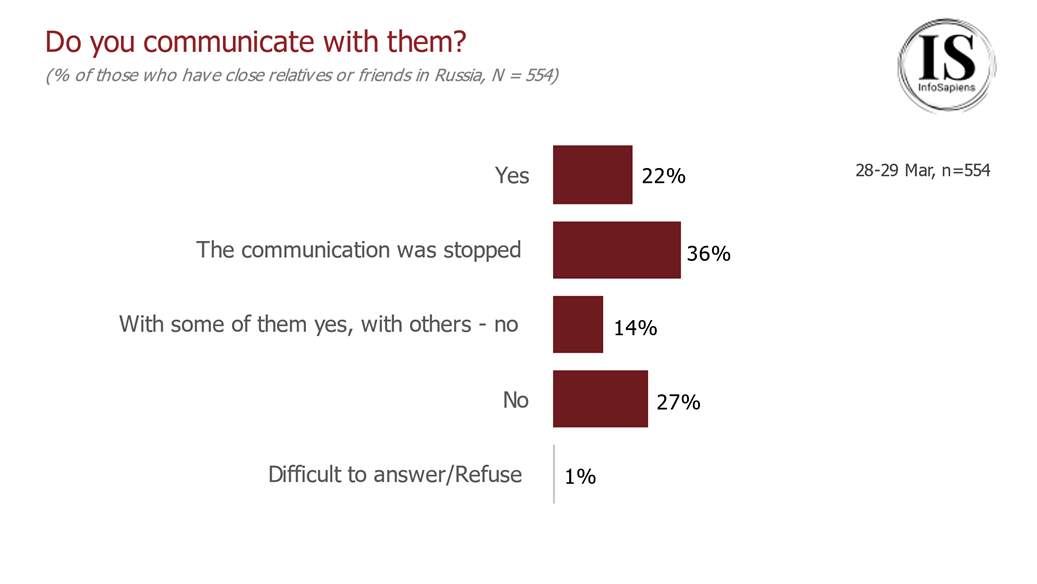
Half of Ukrainians do not know the position of their relatives or friends regarding putin either because they stopped communicating, or because they do not discuss these topics. Among the rest, almost equal shares of the respondents indicate that their relatives or friends support putin (20%) and that they do not support (17%). These indicators are significantly higher than the data of Russian sociological surveys, which, according to the researchers of Info Sapiens, may indicate that communication with Ukrainians affects the position of Russians, so it is worth communicating with them, no matter how hard and unpleasant it may be.
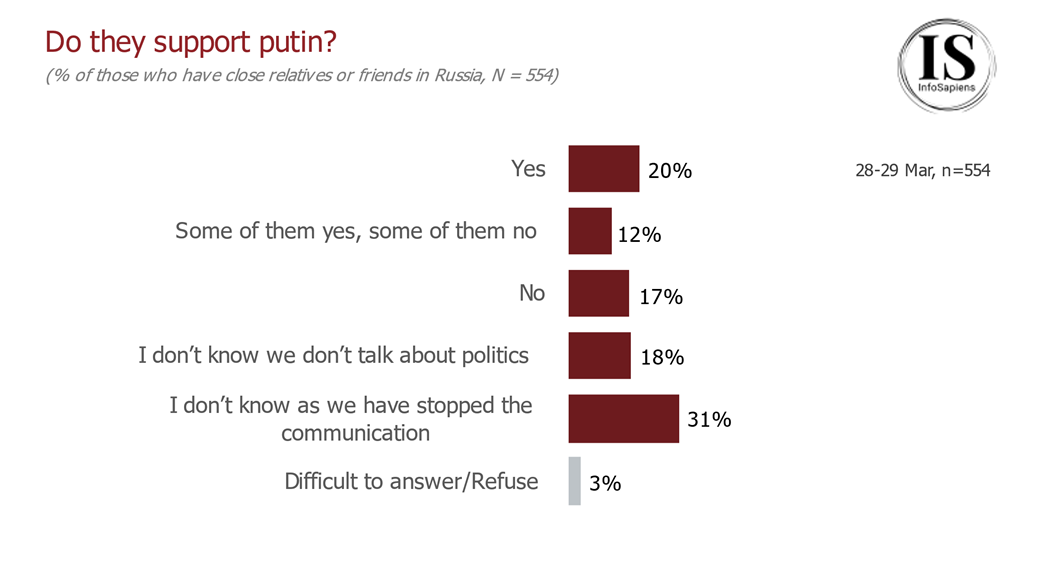
The more Russians among the relatives and acquaintances who do not support putin, the less Ukrainians believe that ordinary Russians are to blame. Thus, among those who believe that ordinary Russians are completely to blame, 26% said that among their relatives and friends in Russia there are people who do not support putin, and among those who believe that the Russians are not to blame at all (although there are very a few of such people), - 40%.
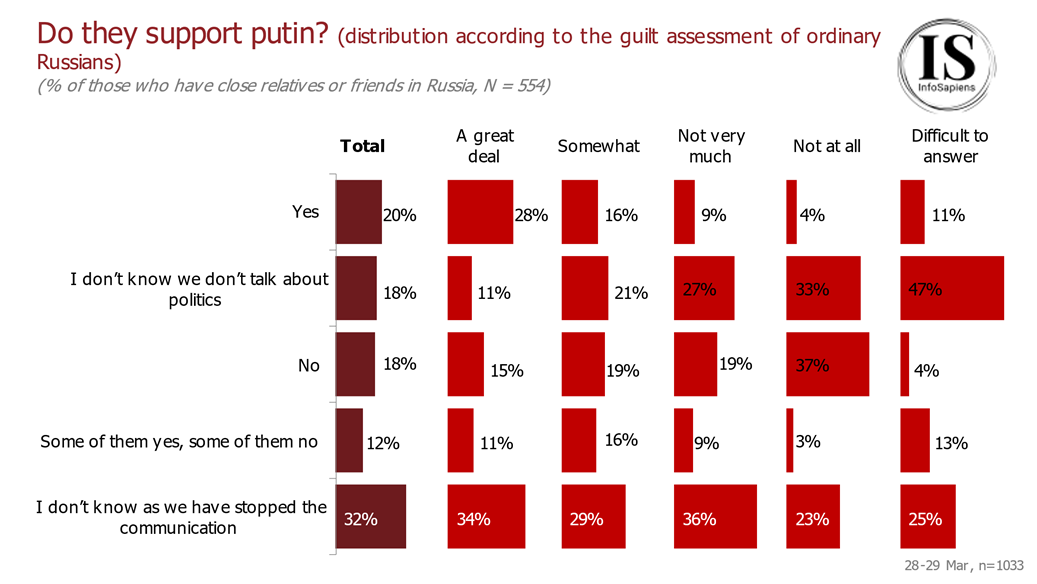
Research Information
The sample of the study consists of 1033 respondents. The survey was conducted by CATI (computer-assisted telephone interviews) based on a random sample of mobile phone numbers. The sample is representative of the adult population of Ukraine (ages of 18 and older) by gender, age, size of settlement and region of residence. The Autonomous Republic of Crimea and the city of Sevastopol were removed from the study. In Donetsk and Luhansk oblasts, the survey was conducted only in the territories controlled by Ukraine. Also, the survey does not cover Ukrainians who have gone abroad.
The maximum theoretical error does not exceed 3.1%. The survey was conducted on 28-29 March, 2022.
